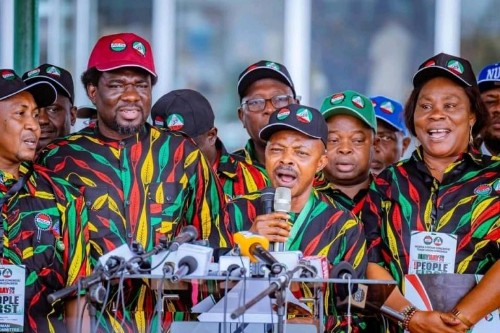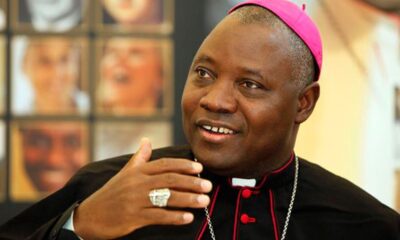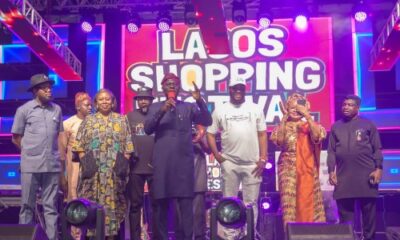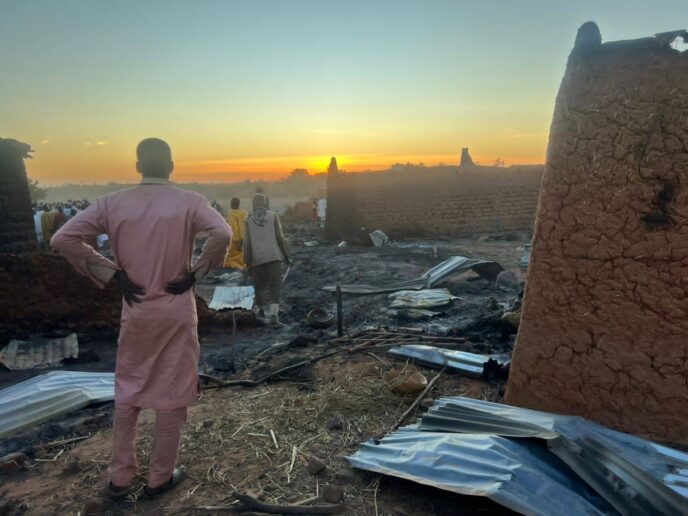The Federal Government’s proposed N54,000 minimum salary was rejected by organised labour, forcing a postponement of the meeting on the ongoing minimum wage negotiations till Wednesday.
Earlier report had it that the Federal Government upped its offer from its earlier proposed N48,000 to N54,000.
The organised labour movement staged a walkout in response to the Federal Government’s proposal last week to set a minimum salary of N48,000. This prompted Tuesday’s gathering.
The OPS had also suggested N54,000 during the meeting, but labour pressed for its demand for a livable wage of N615,000.
According to The Punch, sources who attended the follow-up meeting on Tuesday said that the Federal Government upped its offer from N48,000 to N54,000.
“Well, during the meeting, the government increased its offer from N48,000 to N54,000. However, labour rejected that offer and the meeting has been adjourned till Wednesday,”
When asked if the government’s side was showing any sign of seriousness, the labour leader said, “No seriousness at all. Even state governors did not show up. Those who represented them, like Bauchi and Niger states, did not have the mandates to speak on their behalf.
“As regards the private sector, we did not get to them before the meeting was adjourned but we hope they also increase their initial offer.”
Organised labour on Monday reiterated its May 31, 2024 deadline for the implementation of the new minimum wage.
The National President of the Nigeria Labour Congress, Joe Ajaero, insisted on N615,000 minimum wage, arguing that the amount was arrived at after an analysis of the current economic situation and the needs of an average Nigerian family of six.
He blamed the government and the OPS for the breakdown in negotiation, saying, “Despite earnest efforts to reach an equitable agreement, the less than reasonable action of the Government and the Organised Private Sector has led to a breakdown in negotiations.”
In a statement released at the end of the jointly held NEC meeting by the NLC and TUC which was signed by Joe Ajaero, NLC president and Festus Osifo, TUC president, the unions said they acknowledge the ongoing negotiations between the NLC/TUC, the Organised Private Sector and the Federal Government regarding the new national minimum wage.
While appreciating what they described as the efforts made thus far, the NLC and TUC emphasized the urgency of reaching a fair and equitable agreement that reflects the true value of Nigerian workers’ contributions to the nation’s development and the current crisis of survival facing Nigerians as a result of government’s policies.
They also affirmed commitment to ensuring that the interests and welfare of workers are adequately protected in the negotiation process.
President Bola Tinubu through Vice President Kashim Shettima, on January 30, 2024, inaugurated the 37-member Tripartite Committee on Minimum Wage to come up with a new minimum wage ahead of the expiration of the current N30,000 wage on April 18.
With its membership cutting across federal and state governments, the private sector and organised labour, the panel is to recommend a new national minimum wage for the country.
During the inauguration of the panel, Shettima urged the members to “speedily” arrive at a resolution and submit their reports early.
“This timely submission is crucial to ensure the emergence of a new minimum wage,” Shettima said.
In furtherance of its assignment, a zonal public hearing was held simultaneously on March 7 in Lagos, Kano, Enugu, Akwa Ibom, Adamawa, and Abuja.
The NLC and the TUC in different states proposed various figures as a living wage, referencing the current economic crunch and the high costs of living.
In their different proposals on the minimum wage, the NLC members in the South-West states demanded N794,000 as the TUC suggested N447,000.
At the North-Central zonal hearing in Abuja, the workers demanded N709,000 as the new national minimum wage, while their counterparts in the South-South clamoured for N850,000.
In the North-West, N485,000 was proposed, while the South-East stakeholders demanded N540,000 minimum wage.
But organised labour settled for N615,000 as a living wage.

 BIG STORY2 days ago
BIG STORY2 days ago
 BIG STORY2 days ago
BIG STORY2 days ago
 BIG STORY3 days ago
BIG STORY3 days ago
 BIG STORY3 days ago
BIG STORY3 days ago
 BIG STORY2 days ago
BIG STORY2 days ago
 BIG STORY4 days ago
BIG STORY4 days ago
 BIG STORY2 days ago
BIG STORY2 days ago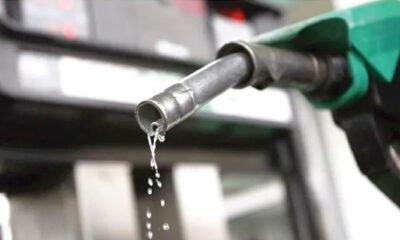
 BIG STORY4 days ago
BIG STORY4 days ago




